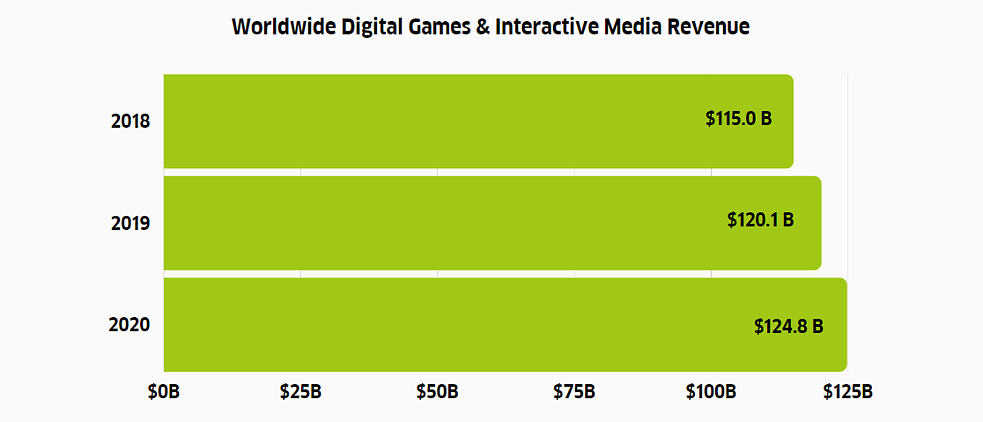Beginning with the Big Industry Names
Working With AAA

The gaming industry continues to be one of the fastest-growing markets, making it a preferred career option for a large number of talented young students. What options does the industry offer? What does it mean to be working with the industry giants and what does it take? Let's take a closer look.
By Shagun Shah
Ambitious, challenging, and complex, video games have come a long way since the simple arcade titles of yore.
In many ways, the last decade has been a blessing for the games industry. The gaming market reached a global revenue of USD 120 billion in 2019 and is forecasted to reach USD 256 billion by 2025. At present, the mobile, computer, and console gaming markets are now frequently associated with budgets of hundreds of millions of dollars, driven by major hubs like the US and China.
Career Opportunities with AAA
With the gaming industry growing by leaps and bounds, it is no wonder that investors are eyeing the market with keen interest. And of course, the need for qualified, player-conscious, and innovative game developers has never been more pressing.
The debate between AAA and Indie is not new. So-called AAA video games are those with the largest development budgets and the bulk expenditures on advertising and other promotional services. Indie Games, or Independent video games, are smaller and cheaper, often produced without the monetary support of a publisher and more creative autonomy for the developer.
Video games are composed of many moving parts and utilise a variety of specialisations in their making. These include creative skills like art, user experience, story writing and game design as well as more technical proficiencies like sound engineering, software programming, product management, project management, and data science. In a studio setting, these skills would be found across positions like ‘Game Designer’, ‘Systems Designer’, ‘Concept Artist’, ‘Animator’, ‘Sound Designer’, ‘Producer’, ‘Product Manager’, and ‘Game Programmer’.
Industry jobs fit into 3 broad categories:
1. Creative
- Creative profiles would be things like game design, storytelling, and art. Game design involves working on the player experience - the rules, the systems, and overall user journey. Depending on the type of game, designers may be required to have a basic knowledge of programming, mathematics, physics and some technical tools.
- Those interested in storytelling should hone their skills at creative writing, visualisation, story and world-building, and content editing.
- In some ways, the skillset overlaps with other mediums like filmmaking and scriptwriting. Art in video games ranges from concepts, characters, 2D, 3D modelling to special effects and animation. It is a vast and varied field. Artists should study the job requirement carefully and strive to stay up to date with the latest industry practices and technical tools.
2. Business
Business profiles have the greatest overlap with other industries. Those interested in product management, production, marketing, and finance would benefit from honing their analytical skills, and could consider securing an MBA.
3. Technical
- Technical profiles cover engineering and technology-related tasks such as game programming, client engineering, server engineering, and so on. These roles carry the expectation of high technical proficiency with all relevant studio tools and industry-standard programming languages. These requirements are most prone to change, as technology evolves.
- A bachelor’s education in computer science or a related technical degree is typically expected.
AAA or Indie?
Let motivation be the guiding light - where AAA focuses more on revenue, Indie games are usually made for fun and not revenue per se. Also, with AAA, the vertical growth will enable you to explore more managerial profiles, but game-development can take a back seat.
It's for you to decide if you want to start big and learn at someone else´s expenses, or experience the gush of all profiles as an Indie.


Comments
Comment